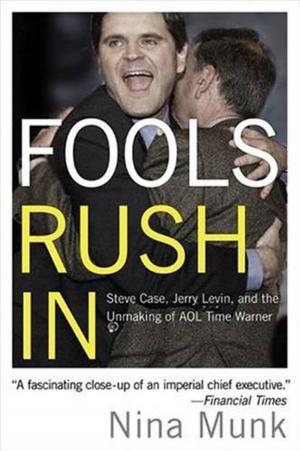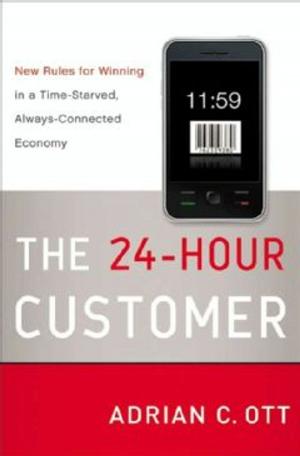| Author: | Andy Kessler | ISBN: | 9780061741678 |
| Publisher: | HarperCollins e-books | Publication: | October 13, 2009 |
| Imprint: | HarperCollins e-books | Language: | English |
| Author: | Andy Kessler |
| ISBN: | 9780061741678 |
| Publisher: | HarperCollins e-books |
| Publication: | October 13, 2009 |
| Imprint: | HarperCollins e-books |
| Language: | English |
You get sick; you go to your doctor. Too bad. Because medicine isn't an industry, it's practically witchcraft. Despite the growth of big pharma, HMOs, and hospital chains, medicine remains the isolated work of individual doctors—and the system is going broke fast.
So why is Andy Kessler—the man who told you outrageous stories of Wall Street analysts gone bad in Wall Street Meat and tales from inside a hedge fund in Running Money—poking around medicine for the next big wave of technology?
It's because he smells change coming. Heart attacks, strokes, and cancer are a huge chunk of medical spending, yet there's surprisingly little effort to detect disease before it's life threatening. How lame is that—especially since the technology exists today to create computer-generated maps of your heart and colon?
Because it's too expensive—for now. But Silicon Valley has turned computing, telecom, finance, music, and media upside down by taking expensive new technologies and making them ridiculously cheap. So why not the $1.8 trillion health care business, where the easiest way to save money is to stop folks from getting sick in the first place?
Join Kessler's bizarre search for the next big breakthrough as he tries to keep from passing out while following cardiologists around, cracks jokes while reading mammograms, and watches twitching mice get injected with radioactive probes. Looking for a breakthrough, Kessler even selflessly pokes, scans, and prods himself.
CT scans of your heart will identify problems before you have a heart attack or stroke; a nanochip will search your blood for cancer cells--five years before they grow uncontrollably and kill you; and baby boomers can breathe a little easier because it's all starting to happen now.
Your doctor can't be certain what's going on inside your body, but technology will. Embedding the knowledge of doctors in silicon will bring a breakout technology to health care, and we will soon see an end of medicine as we know it.
You get sick; you go to your doctor. Too bad. Because medicine isn't an industry, it's practically witchcraft. Despite the growth of big pharma, HMOs, and hospital chains, medicine remains the isolated work of individual doctors—and the system is going broke fast.
So why is Andy Kessler—the man who told you outrageous stories of Wall Street analysts gone bad in Wall Street Meat and tales from inside a hedge fund in Running Money—poking around medicine for the next big wave of technology?
It's because he smells change coming. Heart attacks, strokes, and cancer are a huge chunk of medical spending, yet there's surprisingly little effort to detect disease before it's life threatening. How lame is that—especially since the technology exists today to create computer-generated maps of your heart and colon?
Because it's too expensive—for now. But Silicon Valley has turned computing, telecom, finance, music, and media upside down by taking expensive new technologies and making them ridiculously cheap. So why not the $1.8 trillion health care business, where the easiest way to save money is to stop folks from getting sick in the first place?
Join Kessler's bizarre search for the next big breakthrough as he tries to keep from passing out while following cardiologists around, cracks jokes while reading mammograms, and watches twitching mice get injected with radioactive probes. Looking for a breakthrough, Kessler even selflessly pokes, scans, and prods himself.
CT scans of your heart will identify problems before you have a heart attack or stroke; a nanochip will search your blood for cancer cells--five years before they grow uncontrollably and kill you; and baby boomers can breathe a little easier because it's all starting to happen now.
Your doctor can't be certain what's going on inside your body, but technology will. Embedding the knowledge of doctors in silicon will bring a breakout technology to health care, and we will soon see an end of medicine as we know it.















